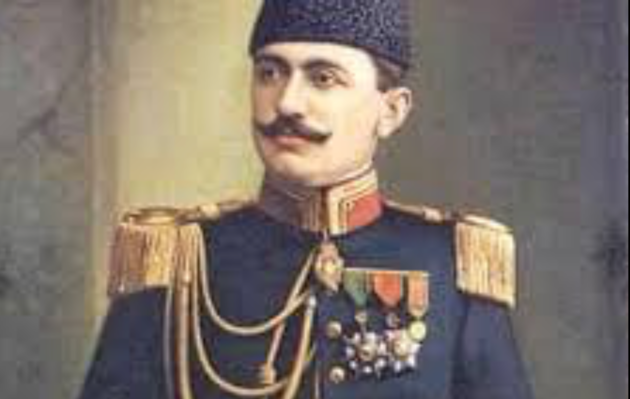Today, September 15, Azerbaijan marks the 102nd anniversary of the liberation of Baku. On this day in 1918, the Caucasian Islamic Army entered the capital of Azerbaijan, defeating the 50,000-strong forces of the Dashnaks and Bolsheviks. Shortly before that, on June 4, 1918, an agreement of friendship was signed between the Ottoman Empire and the Azerbaijan Democratic Republic, which, incidentally, became the first agreement between the Azerbaijani government and a foreign state, and soon Ottoman Turkey, despite its difficult situation, to restore territorial integrity Azerbaijan sent the Caucasian Islamic Army there.
The Turkish commander, lieutenant general, half-brother of Enver Pasha, commander of the Caucasian Islamic Army Nuri Pasha is called the liberator of Baku. On the instructions of his older brother Enver Pasha, Minister of Defense of the Ottoman Empire, Nuri Pasha led the 12,000th army, which liberated not only Baku, but also several other settlements of Azerbaijan.
Prior to that, Nuri Pasha served in the Balkan region, took part in the Turkish-Italian war, and after the Ottoman state entered the First World War, he entered the service of the Sultan's guard. Until 1917, he took an active part in battles against British, Italian and French troops. On May 25, 1918, Nuri Pasha, together with 300 military instructors, arrived in Ganja and was greeted with great enthusiasm by the residents of the city. Tired of chaos and anarchy, the Azerbaijani population yearned for a force capable of restoring peace and order both in Ganja and throughout the country. And Nuri Pasha justified these hopes of the Ganja residents by restoring proper law and order in the city in a relatively short time. This created conditions for the move of the Azerbaijani government from Tiflis to Ganja on June 16, 1918. As the historian Aydin Balayev believes, "in fact, Turkish military assistance played a key role in protecting the nascent Azerbaijani statehood from the encroachments of the Bolshevik-Dashnak forces. With regard to the Turkic peoples of the Caucasus and Central Asia, Turkey performed the same liberation mission as Russia did in the Balkans. Mammad Emin Rasulzade emphasized, despite all the collisions in Azerbaijani-Turkish relations, "the memory of the Turks in our hearts will remain the same as in Bulgaria about the Russian heroes who came there to liberate it."
The Caucasian Islamic army liberated Goychay, Salyan, Agsu and Kurdamir from the Bolshevik-Dashnak armed formations. The decisive battle took place in Garamaryam. On September 15, 1918, after 30 hours of fierce fighting, Baku was liberated. In the battles for the Azerbaijani capital, 1,132 soldiers of the Caucasian Islamic Army were killed.
Baku people greeted Nuri Pasha with great enthusiasm, who addressed the townspeople from the minbar (department) of the Tezepir mosque. People took to the streets in droves to greet the army as a liberator. In honor of Nuri Pasha and the command of the Caucasian Islamic army, a banquet was given; he was staying at the house of the Azerbaijani millionaire and philanthropist Haji Zeynalabdin Tagiyev. Azerbaijani patrons financed the army, provided assistance with uniforms, weapons and food. And among ordinary people, and among the intelligentsia, and among entrepreneurs, the position was unambiguous - the city should be liberated, and every effort should be made to this. Even when the Turkish army left Baku in October 2018, they said goodbye to it very warmly - according to the terms of the Mudros truce, the Ottoman state was forced to withdraw its troops to the pre-war borders, and the Islamic army left Baku.
Nuri Pasha was arrested by the British in Batumi. On August 8, 1919, with the assistance of local residents, he managed to escape on his way to court. The seizure of the Baku liberated by the Bolsheviks upset Nuri Pasha. In the book by Azerbaijani writer Jabbar Erturk, "Turkism Forgotten in the Homeland", published in 1956, Nuri Pasha's words are quoted: "The death of my brother Envar Pasha plunged me into grief, but the seizure of Azerbaijan became even more painful for me. My brother was ordinary mortals, and sovereignty in Azerbaijan is a matter of honor. It would be better if I died and would not know about it. "
"If it were not for the Caucasian Islamic army, today Baku would not be an Azerbaijani city. The plans of the forces that were in power in Baku at that time were aimed at tearing the city away from Azerbaijan. Therefore, the Liberation Day of Baku is not for us. less important holiday than Independence Day, "Farhad Jabbarov, scientific secretary of the National Museum of History of Azerbaijan, ANAS, told Vestnik Kavkaza.






